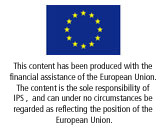By Kanis Dursin
JAKARTA, May 31, 2012 (IPS) – Misradi, a 58-year-old farmer from the Jelok neighborhood in Pacitan, East Java, some 524 kilometres east of Jakarta, has found a way to reduce his monthly expenses by 30 percent: instead of buying produce from the local market, he and his family now harvest most of their vegetables from their own yard.
Jelok, a neighbourhood of 126 families in Pacitan, the hometown of Indonesian President Susilo Bambang Yudhoyono, was chosen in February 2011 as the location for the pilot project of the Sustainable Food Home Area, a programme initiated by the Ministry of Agriculture aimed at mitigating impacts of climate change on the country’s food security.
Known here by its Indonesian acronym KRPL, the programme encourages all residents of participating neighbourhoods to plant medicinal herbs and alternative food crops to meet their own needs. Residents with 200-square-metre yards or larger are also encouraged to farm fish and poultry and rear animals, particularly goats.
Misradi opted to grow tomatoes, chilis, eggplant, spinach, and mustard greens in his 300-square-metre plot.
“The yields were plentiful, much more than we could consume on our own, so we sold the excess to vegetable vendors roaming around neighbouring villages,” the farmer said about his first harvest in May 2011.
Misradi, who lives with his wife, two children and grandchild, told IPS the programme enables him to save 16 dollars a month, almost 30 percent of his monthly income of 54 dollars.
“Other families are able to save as much as 32 dollars per month,” said Misradi, who coordinates the Jelok residents participating in the programme.
Mitigating climate change
Indonesia is striving to adapt to adverse impacts of climate change. The world’s largest archipelagic country of over 13,000 islands, Indonesia is believed to be one of the most vulnerable countries to the catastrophes caused by global warming.
Already, the weather patterns are shifting, making it difficult for farmers to determine when to plant crops, while irregular drought and rainfall has caused crop failures, raising concerns about food security in the country of 242 million people.
The country’s rice production, for example, declined by 1.13 percent in 2011, compared to a 3.2 percent increase in 2010, due to extreme weather, forcing the government to import 1.9 million tonnes of rice, compared to 1.8 million tonnes in 2010, according to the Central Statistics Agency.
The agency also predicts that the country’s population will reach roughly 244 million in 2012, up from 241 million in 2011, and 236 million in 2010.
“Climate change is putting pressure on the country’s agriculture sector as reflected in lower rice production,” said Nono Rusono, director of food and agriculture at the Ministry of National Development Planning.
The agriculture sector employs at least 43 million people and, together with forestry and fishery, contributed 13.2 percent of the country’s gross domestic product (GDP) in 2010.
Haryono, head of the Ministry of Agriculture’s Agency for Agricultural Research and Development, which is in charge of KRPL, said the programme hopes to ensure food security and food self-sufficiency for every family in the country, promote food diversification based on local resources, preserve local food resources, and enhance people’s prosperity.
“The programme is developed on the conviction that national food security builds on family food security,” Haryono said.
Encouraged by the success of pilot projects, Yudhoyono declared KRPL a national programme in February 2012 and appealed to provincial governments to make it a priority.
The government has also taken steps towards mitigation and adaption, including efforts to reduce greenhouse gas emission by 26 percent by 2020.
To ensure food security, the government has encouraged the development of new rice fields. Rusono said the government helped develop 62,000 hectares of new rice fields in 2011 and plans to develop 100,000 hectares in 2012 and another 100,000 hectares in 2013.
“Our target is to achieve a rice surplus of 7.478 million tonnes in 2013 and 10 million tonnes in 2014,” Rusono said.
Government ‘indifferent’ to small-scale producers
Witoro, chairman of the NGO People’s Coalition for Food Sovereignty, welcomed the KRPL programme but warned that its success depends on whether or not the government is willing to help market people’s products.
“When people produce the same products at the same time, there will certainly be excess and unless the government helps market the excess products the people could get disappointed and abandon the programme,” he cautioned.
Over all, according to Witoro, the current government has little, if any, political commitment to ensuring food security, let alone food sovereignty.
“The government has no clear long-term target or (vision) – no projected numbers of people and their food needs – on how to ensure food security,” he said.
“The Merauke Integrated Food and Energy Estate (MIFEE) and the Master Plan for Acceleration and Expansion Development both prioritise commodities in high demand and require huge investment – they reflect the government’s indifference to small-scale food producers,” Witoro said.
At least 36 domestic and foreign private companies have been given permits to cultivate more than two million hectares of land in Merauke, Papua province through the MIFEE. When completed, the estate is expected to produce 1.95 million tonnes of rice, 937,000 tonnes of corn, 167,000 million tonnes of beans, 64,000 cows, 2.5 million tonnes of sugar and 937,000 tonnes of crude palm oil every year.
The Master Plan for Acceleration and Expansion Development, on the other hand, aims to make Indonesia one of the world’s 10 major economies by 2025 by, among other things, encouraging the private sector to play a major role in economic development, particularly in the area of infrastructure. The plan, which was launched in May 2011, also promises fiscal and non-fiscal incentives to the private sector.
According to the activist, the government’s overreliance on big corporations and imports shows a lack of political commitment to develop the country’s food security.
“The government must engage small food producers like farmers in the country’s food security programme. However, to do that the government must introduce land reforms, as virtually all of the country’s farmers have only between 2,000 and 3,000 square metres of farm and that is barely enough to support their life,” Witoro concluded.
(END)



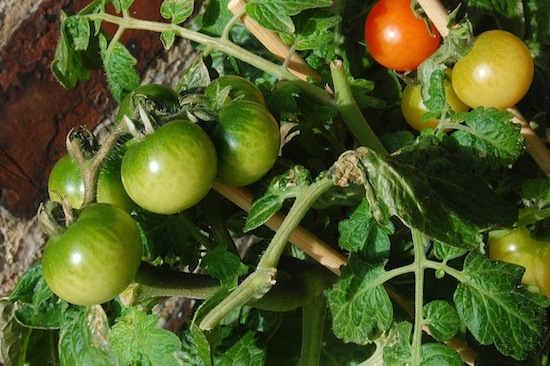
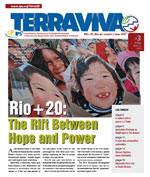
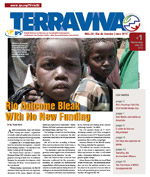
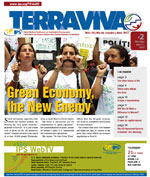

 Add to Google
Add to Google




